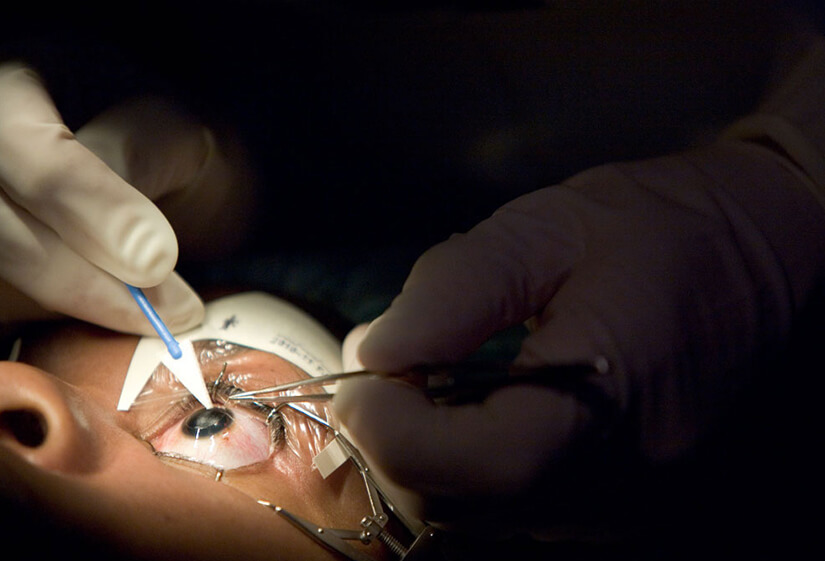In a world driven by screens and technology, clear vision is more essential than ever. If you’re tired of relying on glasses or contact lenses to see the world around you, you may be considering eye surgery to bid farewell to spectacles. But what does it cost to undergo an eye operation? eye operation for removing spectacles cost, and what factors should you take into account? In this comprehensive guide, we’ll explore the cost of eye operations, the different procedures available, and the key considerations to keep in mind.
Introduction:
Imagine waking up every morning with crystal-clear vision, free from the hassle of searching for your glasses or inserting contact lenses. This dream can become a reality through eye operations designed to eliminate the need for spectacles. However, before embarking on this journey to visual freedom, it’s crucial to understand the various aspects of eye surgery, including the eye operation for removing spectacles cost involved and the factors that influence it.
Understanding the Need for Eye Operations:
Wearing spectacles or contact lenses is a common solution for vision problems such as myopia (nearsightedness), hyperopia (farsightedness), or astigmatism. While these vision aids are effective, many individuals find them inconvenient or uncomfortable. Eye operations offer an alternative by reshaping the cornea or inserting intraocular lenses to correct these refractive errors.

Types of eye operation for removing spectacles cost:
Laser-Assisted In Situ Keratomileusis (LASIK):
LASIK is one of the most popular and widely performed eye surgeries for spectacle removal. It involves using a laser to reshape the cornea, allowing light to focus directly on the retina, thus correcting vision.
Photorefractive Keratectomy (PRK):
Similar to LASIK, PRK reshapes the cornea, but it involves removing the outer layer of the cornea before laser treatment. PRK is suitable for those with thinner corneas or specific corneal conditions.
Implantable Collamer Lens (ICL):
ICL surgery involves implanting a thin, prescription lens inside the eye, behind the iris. It is an ideal option for individuals with extreme refractive errors or thinner corneas.
Refractive Lens Exchange (RLE):
Additionally, RLE, which stands for Refractive Lens Exchange, is a procedure where the eye’s natural lens is replaced with an artificial lens, often referred to as an intraocular lens (IOL). This surgery is typically recommended for individuals over 50 and those with presbyopia.
Factors Affecting the Cost of Eye Operations:
The cost of eye operations can vary significantly based on several key factors:
Surgeon’s Expertise and Reputation
Experienced surgeons with a high success rate often charge more for their services. However, their expertise can provide added confidence in the outcome.
Geographic Location
The cost of living and healthcare expenses can vary by location. Procedures in metropolitan areas may be more expensive than those in smaller towns.
Type of Procedure Chosen
Different eye operations come with varying price tags. LASIK, for example, is usually more affordable than procedures involving lens implantation.
Pre-Operative and Post-Operative Care
Comprehensive pre-operative evaluations and post-operative care can affect the overall cost. Ensure you understand what is included in the package offered by your surgeon.
Average Cost of Eye Operations
On average, the cost of LASIK or PRK can range from $2,000 to $3,000 per eye. However, more complex procedures like ICL or RLE may cost between $3,000 and $5,000 per eye. Keep in mind that these figures can vary widely.
Insurance Coverage for Eye Operations
Most insurance plans consider eye operations for refractive purposes elective and do not cover them. However, some flexible spending accounts (FSAs) or health savings accounts (HSAs) may allow you to use pre-tax dollars for these procedures.
Paying for Your Eye Operation
If your insurance doesn’t cover the cost, there are financing options available, including payment plans and medical credit cards. Be sure to discuss payment options with your surgeon’s office.
Choosing the Right Surgeon
Selecting a skilled and reputable surgeon is paramount. Research potential surgeons, read reviews, and consult with them to ensure you are comfortable with their expertise.
Preparing for the Procedure
Before your surgery, your surgeon will provide specific guidelines. This may include discontinuing contact lens use and avoiding certain medications.
The Eye Operation Process
During the procedure, you will be awake, and your eye will be numbed with eye drops. The surgery itself is usually quick, and you can return home the same day.
Recovery and Post-Operative Care
After your surgery, follow your surgeon’s instructions diligently. Recovery times can vary, but most patients experience improved vision within a few days to weeks.
Benefits of Eye Operations
The benefits of eye operations are numerous. They include clear vision without the need for spectacles, improved quality of life, and increased self-confidence.
Risks and Side Effects
While eye operations are generally safe, there are risks involved, such as dry eyes, halos, or glare at night. Discuss potential risks with your surgeon.
Author Details:
Dr. Sushruth Appajigowda holds a prominent position as a Cornea, Cataract, Glaucoma, and LASIK Surgeon in Bangalore. He serves as the chief Cataract and Refractive surgeon at Vijaya Nethralaya Eye Hospital, Nagarbhavi Bangalore. Renowned as one of the finest LASIK surgeons nationwide, he brings with him over 12+ years of experience across multiple LASIK platforms, including ZEISS, ALCON, SCHWIND, AMO, and Bausch and Lomb. Having successfully conducted over 5000 LASIK procedures, Dr. Sushruth holds the title of a Certified Refractive Surgeon and a Fellow of the All India Collegium Of Ophthalmology. Furthermore, he stands as a distinguished speaker at various National and International Forums, using his expertise to guide you in selecting the most suitable procedure based on your health requirements.

Frequently Asked Questions (FAQs):
What is the best age for eye surgery?
The best age for eye surgery varies, but most surgeons recommend waiting until your prescription stabilizes, typically in your mid-20s.
Can both eyes be operated on the same day?
Yes, many people choose to have both eyes operated on during the same session for convenience.
Is eye surgery painful?
No, the procedure itself is typically painless, and any discomfort afterward is manageable with prescribed medications.
How long does the recovery process take?
Recovery times vary, but most patients experience significant improvement within a few days to weeks.
Are there any restrictions after eye surgery?
Your surgeon will provide post-operative guidelines, which may include avoiding strenuous activities and swimming for a certain period.
Conclusion:
Embarking on an eye operation journey to bid farewell to spectacles is a significant decision. By understanding the costs involved, considering the factors that influence those costs, and choosing a skilled surgeon, you can achieve the visual freedom you desire. Ultimately, the investment in clearer vision and a glasses-free life can be priceless. If you’re ready to take the next step, consult with an eye surgeon to explore your options.












